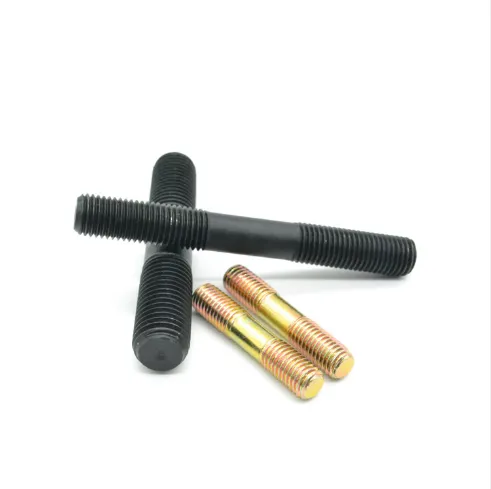Choosing the Right 5mm Stud Bolt for Your Industrial Applications and Projects
Dec . 05, 2024 09:32 Back to list
Choosing the Right 5mm Stud Bolt for Your Industrial Applications and Projects
Understanding 5mm Stud Bolts Applications, Benefits, and Types
In the realm of mechanical engineering and construction, the importance of fasteners cannot be overstated. Among these, stud bolts play a critical role in ensuring the stability and durability of structures and machinery. A specific type of stud bolt that is often utilized is the 5mm stud bolt. This article delves into the applications, benefits, and types of 5mm stud bolts, providing insight into their significance in various industries.
What is a 5mm Stud Bolt?
A stud bolt is a type of fastener that consists of a threaded rod with no head, which is typically manufactured from high-strength materials such as stainless steel or carbon steel. The 5mm specification refers to the diameter of the stud, which is essential for determining the load-bearing capacity and suitability for specific applications. Stud bolts are designed to be paired with nuts and washers to create a secure connection between two or more parts.
Applications of 5mm Stud Bolts
The applications of 5mm stud bolts are extensive, ranging from automotive to construction and industrial machinery. In the automotive industry, these bolts are commonly used to secure engine components, ensuring that everything remains tightly assembled during operation. In construction, 5mm stud bolts may be found in pre-fabricated structures, where they provide stability and strength in connections among steel beams. Additionally, these fasteners are frequently used in machinery assembly, plumbing, and other applications requiring reliable fastening solutions.
Benefits of Using 5mm Stud Bolts
5mm stud bolt

1. Strength and Durability One of the primary advantages of 5mm stud bolts is their inherent strength. Manufactured using high-grade materials, these bolts can withstand significant loads and pressures, making them ideal for heavy-duty applications.
2. Corrosion Resistance Many 5mm stud bolts are made from stainless steel, which offers excellent resistance to corrosion. This property is particularly beneficial in environments exposed to moisture or chemicals, ensuring longevity and reducing maintenance requirements.
3. Ease of Installation The design of stud bolts allows for easy installation and removal. Since they do not have a head, they can be tightened into a pre-drilled hole, reducing the risk of stripping the fastener and making it easier to achieve the desired clamping force.
4. Versatility 5mm stud bolts can be used in a variety of settings and applications, which makes them a versatile choice for engineers and designers. Their compatibility with different nuts and washers adds to their adaptability in various fastening requirements.
Types of 5mm Stud Bolts
There are several types of 5mm stud bolts available, each tailored for specific applications. They can be categorized based on their material composition, coating, and threading types. For example, fine-threaded stud bolts provide a tighter grip and are often preferred for applications requiring precise adjustments. On the other hand, coarse-threaded bolts tend to be easier to install and are used in applications where speed is essential.
In conclusion, the 5mm stud bolt is a vital component in numerous industries, providing strength and reliability across a variety of applications. Their benefits, including durability, corrosion resistance, and ease of installation, make them an attractive option for engineers and craftsmen alike. Understanding the different types of 5mm stud bolts and their appropriate uses can help professionals choose the right fastener for their specific needs, ensuring optimal performance and longevity in their projects. Whether in automotive manufacturing, construction, or machinery assembly, 5mm stud bolts are indispensable tools in modern engineering.
Latest news
-
High-Quality Panel Stud Bolt Reliable Panel Stud Bolt Factory & Suppliers
NewsJul.08,2025
-
High-Precision Fine Thread Locknuts Manufacturer & Supplier Custom Solutions
NewsJul.08,2025
-
PH Imperial Stud Bolt – High Strength Fasteners from Leading Supplier & Factory
NewsJul.07,2025
-
High-Quality Allen Wrench Bolts Leading Factory, Company & Suppliers
NewsJul.07,2025
-
Wholesale Ball Stud Bolt - High Quality Supplier & Factory Price Reliable Wholesale Ball Stud Bolt Company
NewsJul.06,2025
-
High-Strength Alloy Bolts Manufacturer & Supplier Quality Alloy Fasteners Factory
NewsJul.06,2025
